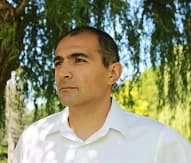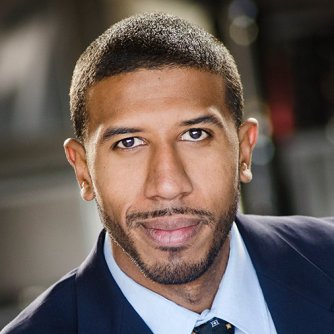
For much of last summer, the big international story was the nuclear deal between the U.S. and Iran. Since then, new headlines have pushed it to the wayside. But there's still lots to say about the agreement, particularly in the classroom, according to professor Nader Hashemi, who directs the Center for Middle East Studies at the University of Denver. He says the deal holds lessons for the aspiring diplomats he teaches. Click the audio link above to hear the full interview. Edited highlights are below.
Why he thinks the U.S. has a moral responsibility to help Iran:
"The United States not too long ago, actually intervened in a very destructive way to subvert the prospects for democratic change in Iran. I tell my students the story of 1953: In the mid-1950s there was actually a ripe democratic moment in Iran. There was a nationalist prime minister who was actually a liberal democrat, he was popular, there was an emerging democratic moment in Iran. It looked like the prospects for democracy would be quite good.
But what happened in the summer of 1953, the United States, the C.I.A. backed by the British, intervened and they staged a military coup that toppled the democratically elected prime minister, restored the Shah to power, supported him for 25 years. That set the stage for the Iranian revolution of 1979, of which we're still dealing with the consequences. It was through the filter of the Cold War, that was the argument.
In fact, in a diplomatic overture to the Iranians in the year 2000 -- in March of 2000 -- then Secretary of State Madeleine Albright actually publicly apologized for that intervention and openly acknowledged that it was a setback for political development. So I ask my students to think about the following prospects: Where might Iran be today had we not intervened at that moment -- had Iran emerged as a democratic society? Where might the middle east be? Where might the Muslim world be today if we had an indigenous, authentic democracy in the heart of the Islamic world?"
On the Colorado connection to the Iran Nuclear Deal:
"Iran's current foreign minister, Javad Zarif, is a graduate of the University of Denver. He got his Ph.D. there in 1988... Most people agree that had it not been for the character of Javad Zarif, and the very unique relationship that he developed with Secretary of State John Kerry in Vienna over the course of these negotiations -- that they developed a rapport and understanding -- that had those two individuals not been present around the negotiating table, backed by their respective presidents, that we probably would not have gotten to this deal."
On why he thinks the nuclear deal is a defeat for hardliners on all sides:
"Iranian hardliners believe that our world is shaped by clashing civilizations where Iran and the West primarily are locked into this conflict where there can be no common ground. Where negotiation, compromise, diplomacy does not have any chance of success... it's an ideological defeat for them because their narrative was that you can't reach any accommodation with the West -- the United States in particular.
But what we saw, as a result of very intense and serious diplomacy over the last two and a half years approximately is that actually you can solve conflicts via diplomacy... there are also hardliners that we have, I'm not saying they're exact parallels, but there are people who have a very similar view here in the United States with respect to our relationship with Iran and who believe you really can't negotiate and find common ground. So for them I would argue that the nuclear deal that was arrived at was also a similar defeat, a shock."
On the political controversy surrounding the deal:
"As a reflex, people -- at least here in the United States and on the Iranian side -- have tried to advance these arguments that this deal does not stand up to critical scrutiny, it won't guarantee that Iran won't obtain a nuclear weapon at some point, that there's no guaranteed inspection regime that can make sure the Iranians live up to their end of the bargain, and most importantly the biggest argument is that this deal is a flawed deal because it gives Iran all of this money -- $150 billion dollars that would allow it to spread its mayhem and advance its hegemony in the region.
All of these arguments are ones that we were exposed to over the summer by critics of the Iran nuclear deal and I've argued, to my students and to the public, that none of those arguments on close examination really stand up to critical scrutiny."
On the argument that the deal could harm Israel:
"Let's take Israel's perspective: If Israel is concerned about Iran's acquisition of a nuclear weapon that could then threaten the state of Israel, wouldn't it be in Israel's interest to try and constrain and prevent Iran from getting a nuclear bomb, or nuclear capacity? Which is exactly what this agreement does: It pushes Iran's breakout capacity back into the future, it locks it in, it provides international inspections -- the most intrusive international inspections in the history of arms control agreements.
This agreement I think actually makes Israel much safer than not having the agreement... and that's actually why when you look inside Israel itself the debate is much more nuanced and sophisticated than what we're hearing from Benjamin Netanyahu. Where significant sectors of the Israeli military and intelligence sectors are actually much more supportive of this nuclear agreement than the current Israeli government."









